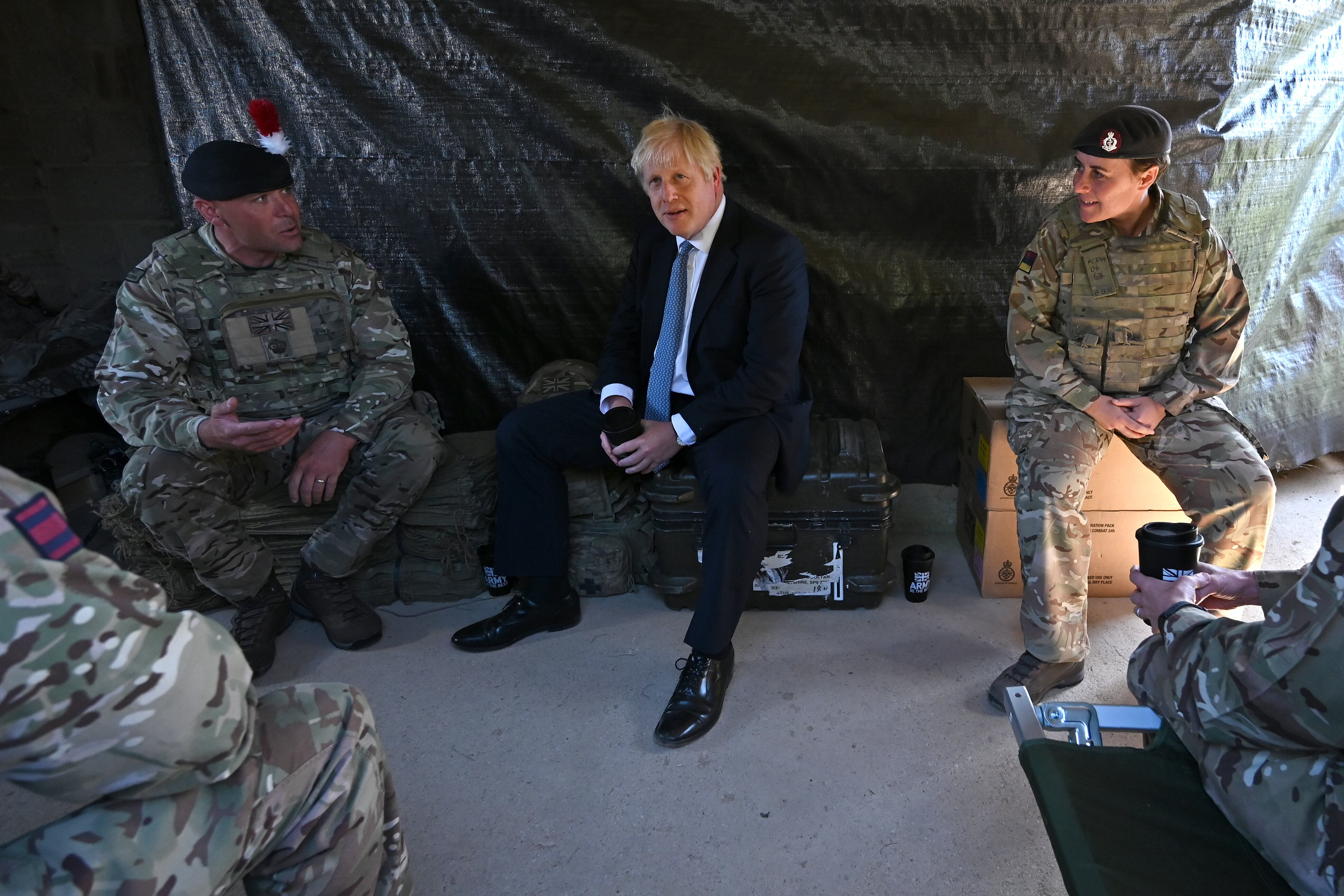LONDON — The British government will conduct an extensive review integrating defense, security and foreign policy if the Conservative Party wins the upcoming general election, Prime Minister Boris Johnson says.
The Conservatives are offering what appears to be a fundamental review of Britain’s armed forces, with Johnson saying the initiative will lead to a “huge technological upgrade of security forces to keep Britain safe and strengthen NATO.”
The review is scheduled to get underway next year and be led by the Prime Minister's office, said Johnson.
Johnson's promise of a strategy shift in policy comes as London prepares to host NATO’s 70th anniversary summit on Dec. 4, dubbed by alliance officials as a “leaders' meeting.”
National media here reported Johnson as saying it would be the “deepest review of Britain’s defense, security and foreign policy since the end of the Cold War.
“It will extend from the armed forces to the intelligence services, counter-terrorism forces and serious organized crime. It will also consider Britain’s foreign policy, how we can best use our huge expenditure on international development, and the role of technology,” he said.
“We must use money better, undertake a huge technological upgrade of all our security forces so they are ahead of hostile powers, terrorists and organized crime — and unlike previous exercises, we must develop an integrated plan for all forces engaged in security,” he is reported as saying.
Investment in space capabilities for the Royal Air Force appears to one of the big items on Johnsons agenda according to the reports.
RELATED

Creating a space command was one of just a small handful of defense policy initiatives announced in the Conservative manifesto released just over a week ago.
Britain has held two full strategic defense and security reviews and a mini review, known as the defence modernization program, since the Conservatives came to power in 2010.
The precedent now is to hold a review every five years. The last review, in 2015, restored capabilities like equipping the Royal Air Force with maritime patrol aircraft but failed to fund the uptick in equipment programs adequately.
A review was expected next year whoever wins the election. The rival Labour Party has promised the same in their election manifesto.
John Louth, the director of the defense, industry and society program at the Royal United Services Institute think tank in London, said Johnson’s proposed review appears to lay the ground for a far more radical rethink than previous strategic defense and security proposals.
“He’s talking about a once-in-a-generation review with everything on the table. Ideas on re-rolling the RAF more toward space, that sounds like something quite profound. Whether that becomes a reality – who knows, but for the moment everything could be in the mix. From what we know they are almost talking about a zero-based budgeting exercise with everything up for grabs,” said Louth.
“Whether it is political rhetoric which will be quickly forgotten is difficult to say, but what will be interesting is to see who is actually undertaking the review and what are their terms of reference,” he said.
The RUSI analyst reckons a comprehensive review will need to take the long view.
“What does technology look like over the next 15-20 years, how do we fund and how do we access those technologies? Also, if we are going to be potentially short of thousands of personnel, how might initiatives like sponsored reserves help fill the gap?” said Louth.
Johnson’s review announcement comes against a background of rising tensions in the Ministry of Defence where service chiefs are already said to be fighting amongst themselves over future funding levels for the military.
One government relations consultant, who asked not to be named, said there was nothing unusual about infighting among the services for funds but the backstabbing was fiercer and earlier in the budget cycle than usual.
Louth said what was challenging now is the “funding doesn’t allow everything on the shopping list, and the personnel numbers in the armed forces don’t allow them to man the equipment they are already committed to, so something will have to give.”
Andrew Chuter is the United Kingdom correspondent for Defense News.






